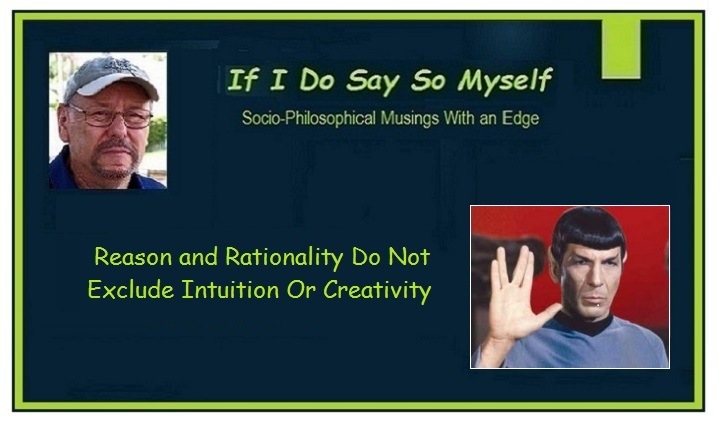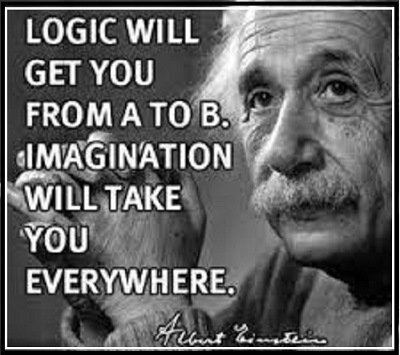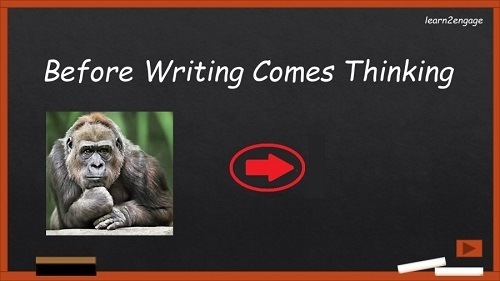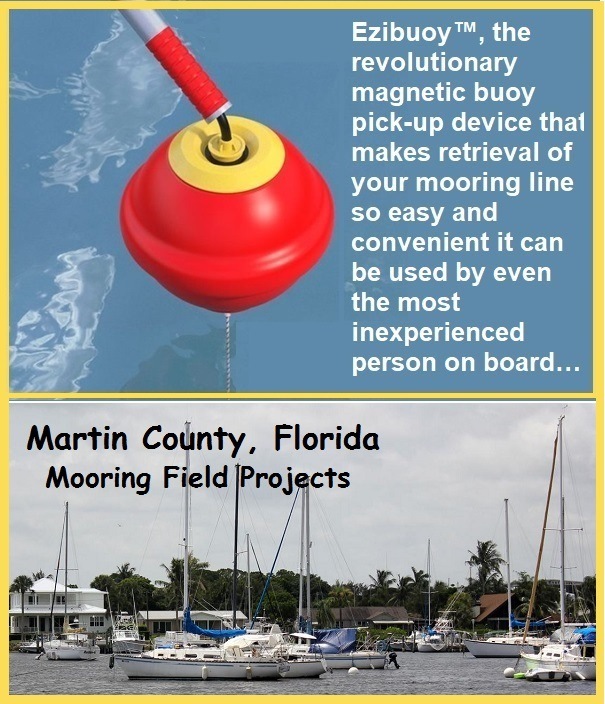Reason And Rationality Do Not Exclude Intuition or Creativity

REASON AND RATIONALITY COMPRISE MORE THAN JUST LOGIC...
Lately, I've noticed several posts by proponents of what I would call "Emotionalism" ― the view that Reason and Rationality are unduly confining intellectually and prevent the attainment of metaphysical understanding, as well as artistic, ethical, and social insight.
For example, I just read a well-expressed piece whose thesis is that rationality seriously limits creativity.
Prior to reading that post, I read one that focused on the "tyranny of Reason."
The dialectic between "Reason" and "Emotion", between "Rationality" and "Faith", and between "Logic" and "Intuition" has been pursued and argued for centuries. Consequently, I don't harbor the illusion that I can personally resolve the conflict in a few short paragraphs here. Or that it will ever be resolved. For surely, everyone is entitled to his or her opinion, when it comes to these matters.
Nevertheless, I would like to suggest to you that most, if not all of the claims concerning the inferiority of Reason to Emotion are based on a fundamental misunderstanding of what comprises Rationality and Reason, as well as a wrong-headedness concerning the nature of "intuition" and "intuitive" thought.
The central dichotomy is not between Reason and Intuition, nor between Rationality and Creativity, but between Reason and Faith...
Reason seeks to understand and to guide action by considering evidence (including that of perception the senses), by weighing arguments and theories against known or accepted facts, and by considering "logical" premises, assumptions, connections, implications, and supported conclusions. However, this just barely scratches the surface.
Logic itself is not limited to formal syllogistic reasoning, or to only two-value propositional calculus (the binary basis of computer languages to date). It encompasses both formal and informal modes of reasoning, including some, such as induction and eduction, which involve significant input from the sphere of intuition.
Intuition is not, I submit, a variant of Vulcan mind-melding with some underlying and unifying force of the Universe. Indeed, "intuition" is not irrational or even non-rational, but is akin to the "background processing" that computers do ― namely, the assimilation and analysis of data and information, both intellectual and perceptual, away from the interference of the "conscious" mind.
Faith, in contrast, is by definition irrational, for it involves believing something independent of ― indeed, often in spite of ― evidence and rational argument.

The fundamental difference between Reason and Faith was, perhaps, best delineated by philosopher Søren Kierkegaard who spoke of the "Leap of Faith" that must be taken in the matter of the existence of a God. And who recognized that no amount of rational discussion or analysis would get one to accepting that particular belief.
But Faith is not just a matter of believing in God. Faith is evident in all manner of belief and tenet, which some embrace in the face of all evidence and common sense to the contrary.
Faith involves believing, for instance, that the course of one's life is completely in one's own hands. That if you just stay optimistic, you will attain all that you seek in life. That whatever doesn't kill you makes you stronger and more able to deal with that which the future brings.
Which is clearly why some people find Faith so attractive ― although I suspect that first-person expressions of Faith also trigger the release of serotonin and endorphins into the True Believer's bloodstream.
I have no problem distinguishing between Reason and Faith... I reiterate, however, that I reject the claim that Reason and Rationality are necessarily separated from Intuition and Creativity.

The proponents of Emotionalism are fond of quoting Einstein, particularly using memes such as the one shown above. However, if Einstein actually wrote or said that, it nevertheless does not follow that it means what Emotionalists want it to mean.
In such writings, Einstein did not reject Rationality, but rather saw that some forms of logic did not capture the full range of Reason, and therefore, needed at times to be abandoned in favor of more free-ranging (creative) forms of thought.
Some Emotionalists want to tell us that we have many more senses available to us than the commonly accepted five human senses of sight, touch, smell, hearing, and taste. If only we throw off the limiting bonds of Rationality.
Again, this claim is a distortion driven by an a priori assumption or, in the alternative, an already-embraced agenda.
First, it is not clear whether the so-called "additional" senses are, indeed, separate senses or just heightened and refined versions and/or combinations of our commonly-identified senses.
For example, snow looks like snow to me. But it is said that the aboriginal peoples of the far North, the Inuit, can distinguish between dozens of different types of snow, each having its own cluster or properties. Exactly how many, and whether the types of snow that exist in the real world are the same in number as the different words that exist in the Intuit language, are in dispute, but it is generally agreed that the types of snow exceed a dozen.
(http://www.thecanadianencyclopedia.ca/en/article/inuktitut-words-for-snow-and-ice/)
Does this mean that the Inuit have a special "snow sense"? Hardly. Because of the demands of their lives, they have refined their perception to be able to recognize, among other things, snow they can walk on, snow they can use to build shelter, and snow that they may fall through and possibly be engulfed in.
In order to refine their senses to that level, do they have to abandon Reason? Hardly. They have only to open their minds to the possibilities of attending closely to complex perceptions built by the same senses we all have.
Some people claim to be Empaths, those who feeI directly the emotions and sensory stimuli that others feel. Me, I am what I call an "Apath" ― someone who is so doltish when it comes to emotions, I have to ask my wife, "How am I feeling today?"

Yet, as an experienced sailor, I can pick out the precise direction from which the wind is blowing at any given point in time. I can predict wind shifts. And I can "sense" bad weather approaching from many miles and hours away.
Is that an ability attained by abandoning Reason and Rationality? Again, hardly.
It is a skill developed over many years of storing and background processing the information of my senses. The feel of the wind on the back of my ears and in my hair (what is left of it, that is). the subtly changing motions, directions, and rhythms of wavelets at the sea's surface. The waxing and waning of pain in my arthritic left shoulder (injured playing ball in high school).
Could I block or interfere with those heightened perceptions by "overthinking" the process of discerning them? Yes.
Could I fail to attain the skill by insisting on analyzing those perceptions consciously and deliberately, rather than giving my mind free reign to process and learn in the "background"? Most certainly.
But, does opening my mind and body, my brain and greater nervous system to all the available data mean that I am abandoning Rationality in favor of Intuition and Creativity? Not on your life!
My ability to read the wind, predict wind shifts, and anticipate bad weather can be seen, I believe, as intuitive. For it is the result of learning to process a huge amount of data outside the limited confines of the conscious mind. Such, however, is not, I submit, outside the limits of rationality.
As to Rationality stifling Creativity, that is pure poppycock. Some of the most creative people I've known have also been mathematicians, scientists, and engineers, fully steeped in systematic Reason.
They just have the ability to allow their minds to range free, so that they may discern the forest for the trees.
That, however, is another argument for another day. Let it suffice at this point in the conversation simply to reiterate that what is mistaken for an opposition between Reason and Intuition, between Rationality and Creativity, is actually the dichotomy between the way of Reason and the way of Faith.
I personally choose the way of Reason. And you, of course, are free to choose as you please. Just don't try to tell me that, in order to be Intuitive or Creative, I have to forsake Reason and Rationality. ― Phil Friedman
Postscript: It is inevitable that some people will take offense at this post, each such person thinking that it is specifically aimed at him or her and seeing it as unduly argumentative. However, I assure you it is not, and I suggest that, if you are moved to take it that way, well ... you might just ask yourself why that is the case. For if the shoe doesn't fit, why in the world would anyone insist on wearing it?
Feel free to disagree in the comments section, but please do not take up space and the readers' time with picayune ad hominem diatribes or dogmatic professions about how you disagree because what you say is true because you say it. The last time I looked, the world was pretty bereft of certified Prophets. — PLF
Author's Notes: If you found this post interesting and worthwhile and would like to receive notifications of my writings on a regular basis, click the [FOLLOW] button on my beBee profile. Better yet, elect there to follow my blog by email. As a writer-friend of mine says, you can always change your mind later.
Should you be curious about some of my other writings on social media, you're invited to take a look at the following:
"On the Limits of Free Expression"
"On Trees, Trolls, Trust and Truth"
"Self-Ascription, Self-Certification, and Snake Oil"
As well, feel free to "like" and "share" this post and my other articles — whether on beBee, LinkedIn, Twitter, Facebook, or Google+, provided only that you credit me properly as the author, and include a live link to my original post.
About me, Phil Friedman: With 30 some years background in the marine industry, I've worn numerous hats — as a yacht designer, boat builder, marine operations and business manager, marine industry consultant, marine marketing and communications specialist, yachting magazine writer and editor, yacht surveyor, and marine industry educator. I am also trained and experienced in interest-based negotiation and mediation.
In a previous life, I was formally trained as an academic philosopher and taught logic and philosophy at university.
Before writing comes thinking. ( The optional-to-read pitch) :
As a professional writer, editor, university educator, and speaker, with more than 1,000 print and digital publications, I've recently launched an online program for enhancing your expository writing: learn2engage — With Confidence. My mission is to help writers and would-be writers improve their thought and writing, master the logic of discussion, and strengthen their ability to deal with disagreement... all of which I have found to be natural precursors to improved writing.

For more information, click on the image immediately above. And to schedule an appointment for a free 1/2-hour consult email: info@learn2engage.org. I look forward to speaking with you soon.
Text Copyright 2017 by Phil Friedman — All Rights Reserved
Image Credits: Phil Friedman, Google Images, and FreeDigitalPhotos.net

Articles from Phil Friedman
View blog
RUNNING ON RAILS DOESN'T GET YOU ANYWHERE, WHEN THE TRACK DEADENDS... · If you are tired of having y ...

"[By] the use of mooring facilities, boaters don’t unintentionally harm seagrass beds with their anc ...

MAKE NO MISTAKE: TRADING IN CRYPTO-CURRENCIES IS A ZERO-SUM GAME... · The number of cryptocurrencies ...
Related professionals
You may be interested in these jobs
-
Tax Professionals
Found in: Talent US 2A C2 - 2 days ago
The Eppolito Group, Inc. New York, United StatesTax Seniors through Partners Needed for CPA firm's in NYC, Long Island, NJ & CT · National & large regional CPA firms in the NY tri-state area seek Tax Professionals to join their tax departments. Positions are available in NYC, LI, NJ & CT. Needs exist for Seniors through Partne ...
-

Kitchen Closer
Found in: Talent US C2 - 21 hours ago
Burger King Sparta, United States Part timeAre you a night owl, like working 2nd shift, we have the current position available if · this is what you're looking for: · The Team Member is responsible for providing exceptional service while working closely with the Restaurant Managers and other Team Members to maintain opera ...
-

Electrical Engineering Manager
Found in: Lensa US 4 C2 - 1 day ago
BG Power Advisors Pittsburgh, United StatesSeeking a Manager for Electrical Engineering Department Direction and Oversight · Responsible for leading departmental operations, including supervision, guidance, and staffing. Directs technical and professional staffing needs, performs performance reviews, and ensures efficien ...


Comments
Phil Friedman
6 years ago #35
Good. Me too. Cheers!
Sara Jacobovici
6 years ago #34
All good Phil Friedman. I enjoy the dynamic exchanges. All the best..
Phil Friedman
6 years ago #33
Sara, thank you for reading and commenting., with all due respect, I submit that your use of the term "creativity" in this context is idiosyncratic and, moreover more than a bit confusing. You are, of corse, entitled to your opinion, but as I suggest in this piece and elsewhere, there is only cognition, however it develops. I do not question that as one's brain becomes active, the developing mind deals first with first-order perceptions. Nor do I deny that the maturing mind is the product of perceptual input and a natural inborn tendency to "create" a second-order vision or understanding of the world. However, that process does NOT precede "thinking". Rather it IS thinking. And therefore, creativity is an aspect of thought, of cognition, not its precursor. I suggest that your distinction between "creativity" and "thinking" conflates "creativity" with what I would call "first-order perceptual experience" -- that is, unreflective experience of the physical senses. Which is hardly what is generally meant by "creativity".!Cheers!
Sara Jacobovici
6 years ago #32
Sara Jacobovici
6 years ago #31
Phil Friedman
7 years ago #30
I agree, Michael. I personally believe that what we call "intuition" is the result not of irrationality, but of background processing at the sub-conscious level of a vast amount of accumulated data. Beyond that, I find it self-contradictory to recommend, as so many "emotionalists" do, that we forsake rational, give reign to our emotions, yet practice some form of "mindfulness" to keep those emotions from running away with us. Your option of embracing "faith" makes much more sense to me. Of course, I am one of those who is kept from communing with Universal Truth by a mundane predilection for Reason. Thank you for reading and joining the conversation. Cheers!
Phil Friedman
7 years ago #29
Gerald Hecht. To quote Chung King, from The Wisdom of Chung King (circa 650 AD), "Do not mistake obscurity for depth, nor shallowness for clarity." Cheers!
Phil Friedman
7 years ago #28
Yes, Ali, you and I agree on that. I would not so much call it a "new thinking force" as recognition of the actual power and breadth of Rationality... and that it encompasses not only rigidly structured formal logic, but also intuitive, as well as creative thought processes. Thank you for joining the conversation. Cheers!
Phil Friedman
7 years ago #27
I understand what you are saying Donna-Luisa Eversley, and I agree that Faith is manifested in actions, one of which is believing in the absence of reationally compelling evidence, indeed, sometimes even contrary to such. And I personally have no bone to pick about that. My point is that, as such, Faith is to be differentiated from Reason. And it is that differentiation which holds, not what I see as specious separation of Intuition and Creativity from Rationality. Thank you for reading and commenting and adding to the conversation. Cheers!
Phil Friedman
7 years ago #26
Gerald Hecht, when Socrates, Plato, and I discussed this, the Rhetoricians of the day were the Sophists -- those skilled in making the worse argument appear the better. Old Socs really despised them for their moral and ethical deviance. For none of us confused Rhetoric with rational analysis. I do admit, however, that it was not until The Plate's student, Ari, wrote his treatises on moral philosophy and ethics, as well as syllogistic reasoning, that we began to understand fully how Rationality encompassed much more than just formal logic. Thank you for triggering those memories for me. Cheers!
Ali Anani
7 years ago #25
Phil Friedman
7 years ago #24
Thanks, Gert, for the kind words. I am very pleased that you and several other readers have found the piece stimulating. Much of this is not right off the top of my head but harkens back to my previous days in studying and teaching Philosophy of Mind. I brought this out of the back recesses of my own mind because I believe it is not only a mistake but a potentially pernicious one to arbitrarily separate Reason and Rationality from Intuition and Creativity. For I believe that to do so limits us to a very narrow vision of what human intelligence both is and can be. Thank you for joining the conversation... and for tolerating its somewhat esoteric nature. Cheers!
Gert Scholtz
7 years ago #23
Harvey Lloyd
7 years ago #22
I believe you got my metaphor of the Vaccination program and the faith we must make decisions on very well. Live long and Prosper.
Phil Friedman
7 years ago #21
Yes, Phillip, I am pleased to see that you have faith in what I say here on beBee.
Phil Friedman
7 years ago #20
Then, Harvey, you and I are agreed on what small 'f' faith means. Am not sure what you mean by your reference to the U.S. vaccination program, but what I learned years ago from a prominent research pharmacologist is that judgments made as part of public vaccination programs are based on what is best for the society overall, not necessarily what is best for any given individual. For example, German Measles are not particularly dangerous to normally healthy individuals, but the disease is a serious danger to the unborn children of pregnant women. So society decides to innoculate because the small risk to any given individual of deleterious side effects is outweighed by the protection to the fetuses of pregnant women if the virus cannot find a way to sustain itself in society as a whole. But the fact remains 'German measles is typically a mild infection that goes away within one week, even without treatment. " So there is little, if any reason for any lone individual to take the vaccines.
Harvey Lloyd
7 years ago #19
Generalization of knowledge allows us to form confidences in specific areas that we are unfamiliar. My faith is a little "f" in this conversation. I mean the faith that the generalization of my knowledge will carry me through waters that i am not necessarily familiar. But do accept your term of self-confidence as a replacement for faith. When i use the faith word it implies that i have considered all of the inputs to the equation indirect (Services i have farmed out or advice from others) direct (Those things that i specifically found fact in.) and made a decision to move forward. I would point to the vaccination program here in the US as an example of services farmed out or indirect general knowledge.
Phil Friedman
7 years ago #18
In fact, Harvey, I don't agree that Faith (capital 'F') is involved in the circumstances you describe. Confidence and self-confidence, yes. Faith no. We build self-confidence from birth. When we struggle to learn to crawl, then walk and climb. Then from that time forward, we add to that each time we confront and obstacle and successfully overcome or cope with it. I didn't have the self-confidence to sail across the Gulf of Mexico from NewOrleans to the Florida coast when I was ten, but several decades later, after I had been sailing and navigating for more than twenty years, I did. For at that point, I was sufficiently experienced to be able to adapt to just about any emergency or obstacle. IMO, to say that doing any given thing for the first ime requires Faith that one can do it, overlooks the cumulative effects of learning and experience. Thank you for joining the conversation. Cheers!
Harvey Lloyd
7 years ago #17
Phil Friedman
7 years ago #16
Devesh, those who are not passionate about the way of Reason mistakenly identify Reason and Rationality with Logic. While Logic as the study of forms of reasoning is a sub-class of Rationality, my point is that it does not make up the whole of Reason. Intuition and Creativity are also components of Rationality, which needs to be seen as the synergistic product of Rational conscious thought, Intuition, and Creative inspiration and action. And when we view intellectual activity in that light, we can, I submit, find ourselves becoming passionate about Rationality. Cheers!
Phil Friedman
7 years ago #15
Geoffrey, I don't deny that some people are strongly empathetic, even to the extent of literally feeling other people's pain, whether physical or psychological. Whether that phenomenon is a natural one having to do with sympathetic excitation of neurons or some such, I have no clue. Where I personally draw the line is with self-declared Empaths who claim to be connected to an underlying Universal Force or reality, especially when they claim to be additionally mediums, channelers, and new-age Prophets and sole arbiters of fact and truth. And even more so when such prophets turn to profit by asking people to "lay some bread" on them so they can continue their critical work of bringing peace, harmony, and universal consciousness to the world. I also have a bone to pick with the Emotionalists who offer such false prophets succor and cover by pushing the view that Reason and Rationality necessarily exclude Intuition and Creativity. For such a view implicitly attacks the way of Reason, for no legitimate purpose that I can discern. Thank you for joining the conversation. Cheers!
Phil Friedman
7 years ago #14
I agree, Pascal. What perplexes me, however, is why the proponents of Emotionalism frequently feel the need to deny Reason, whereas the reverse is not the case. Those who choose the way of Reason rarely if ever discount the potential contributions of Intuition and Creativity, just the a priori dogma of the self-declared Prophets of Emotionalism. (Just thought a bit of intellectual diatribe would raise the blood this sleepy Monday morning.)
Pascal Derrien
7 years ago #13
Phil Friedman
7 years ago #12
Perhaps, there is some serious seas headed this way as a result, but I am not worried because I know that you will help man the pumps. Or something like that. Thanks and cheers!
Jim Murray
7 years ago #11
Devesh 🐝 Bhatt
7 years ago #10
true . Emotion and intuition can fascinate rationality in many people. But rationaility seldom makes people emotional. Few people appreciate logic in an emotional way. Then people tend to focus on people as a word and not the observation It is a storm :)
Phil Friedman
7 years ago #9
I am not quite sure, Devesh. I do notice that few if any adherents of the way of Reason denigrate either Intuition or Creativity. But that many proponents of Emotionalism denigrate Reason and Rationality. Why is that? I hesitate to speak my mind, for if I did, I would set off what Jim Murray often calls a sh@t storm. Cheers!
Devesh 🐝 Bhatt
7 years ago #8
why does rationality often lack the emotional appeal?
Phil Friedman
7 years ago #7
I, for one, agree, Joyce. But I wrote this to counter the posts I am seeing that claim being rational precludes one from being either intuitive or creative. Which to my mind is manifestly false. Thank you for joining the conversation.
Joyce 🐝 Bowen Brand Ambassador @ beBee
7 years ago #6
Milos Djukic
7 years ago #5
This one hit my nerve Phil Friedman. I need to read ten times to understand some lessons :) I think this is a valuable lesson Thank you my friend. Rational and fractal.
Devesh 🐝 Bhatt
7 years ago #4
thank you for the great buzz.
Phil Friedman
7 years ago #3
Devesh, I agree, in the main, with what you are saying. I think some of the anti-reason vs anti-intuition stuff comes from a misapplication of what we know about left brain vs right brain functions and dominance. I think the correct way is to view the brain (and the intellectual function) as a whole that can encompass all of conscious reason, intuition, and creativity. Thank you for joining the conversation. Cheers!
Devesh 🐝 Bhatt
7 years ago #2
Phil Friedman
7 years ago #1